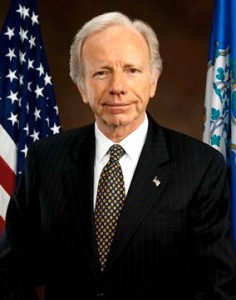Obama defies Congress with ‘recess’ picks
Nominations could provoke constitutional fight
By Stephen Dinan and Susan Crabtree
-
The Washington Times
Wednesday, January 4, 2012
**
FILE ** President Obama introduces former Ohio Attorney General Richard
Cordray as his nominee as the first director of the Consumer Financial
Protection Bureau on July 18, 2011 at the White House. (Associated
Press)
Pushing the limits of his recess appointment powers, President
Obama on Wednesday bypassed the
Senate to install three members of the
National Labor Relations Board and a director for the controversial new
Consumer Financial Protection Bureau - moves Republicans said amounted to unconstitutional power grabs.
Mr. Obama said the appointments, which he previewed during a campaign-style speech in Ohio, were necessary because
Senate
Republicans have blocked him at every turn. But in making the move, he
rejected three precedents, including two in which he played a part, that
would have blocked the appointments.
“I refuse to take ‘no’ for an answer,”
Mr. Obama said in Shaker Heights, drawing applause from his audience. “When
Congress
refuses to act and as a result hurts our economy and puts our people at
risk, then I have an obligation as president to do what I can without
them.”
Mr. Obama tapped former Ohio Attorney General
Richard Cordray to head the consumer protection agency and named three others - two Democrats and one Republican - to the
labor board. Those nominations had all been stymied by congressional Republicans, who said
Mr. Obama was accruing too much power to himself through those two agencies.
The president acted just a day after the
Senate held a session, albeit a pro forma one without any business transacted.
Senators from both parties - including Democrats in 2007 and 2008, when
Mr. Obama was in the
Senate - have said it takes a recess of at least three days before the president can use his appointment powers.
Mr. Obama’s move threatens to ignite an all-out legislative war with
Congress, and Republicans reacted with strikingly sharp language.
Senate Minority Leader
Mitch McConnell, Kentucky Republican, said the move “arrogantly circumvented the American people.”
“Breaking
from this precedent lands this appointee in uncertain legal territory,
threatens the confirmation process and fundamentally endangers the
Congress‘ role in providing a check on the excesses of the executive branch,” he said.
Supporters of the
Consumer Financial Protection Bureau
have said the lack of a top executive has blocked the fledgling agency
from taking on a number of tasks in its mandate to police the financial
sector and protect consumers from fraud.
Consumer groups and labor union advocates cheered
Mr. Obama’s moves.
Senate Republicans don’t object to
Mr. Cordray, but argue the
bureau needs an overhaul before it should be allowed to operate. They say it leaves the agency, whose budget is not approved by
Congress, with too much power concentrated in the hands of its director.
Senate Republicans last month filibustered
Mr. Cordray’s nomination, leaving him seven shy of the 60 votes needed to get a final confirmation vote.
Democrats
and Republicans have increasingly turned to filibusters to block a
president’s nominees when they are in the majority, making recess
appointments an attractive option.
President
George W. Bush used them to circumvent Democrats who filibustered judicial nominations and his pick of
John R. Bolton to be ambassador to the
United Nations.











